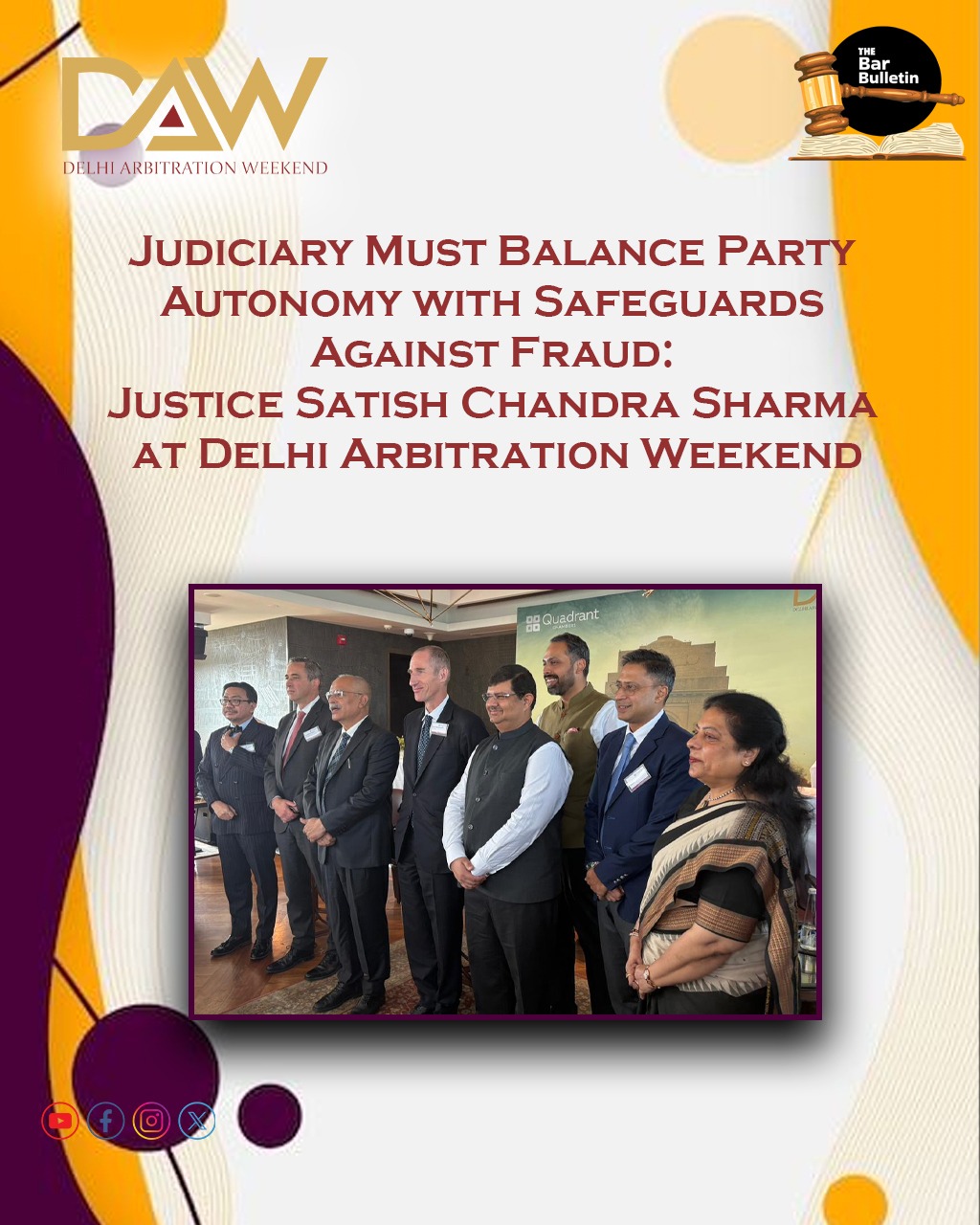Quadrant Chambers hosted an interactive breakfast session on “From Autonomy to Accountability: Safeguarding Arbitral Procedure Against Fraud and Financial Crime” during Delhi Arbitration Weekend at Cirrus 9, The Oberoi, New Delhi. The event brought together senior members of the judiciary, international arbitrators, and leading practitioners to examine accountability in arbitration and the safeguards needed to preserve its integrity.
The session was moderated by Mr Prashanto Chandra Sen Senior Advocate. Justice Satish Chandra Sharma, Judge Supreme Court of India in his opening remarks stressed that while party autonomy remains the cornerstone of arbitration, it is not without limits. “Autonomy without accountability can be dangerous,” he observed, highlighting that arbitral procedures must always be bounded by natural justice, fairness, and a calibrated degree of state supervision. He pointed out that these safeguards prevent arbitration from becoming a vehicle for fraud, money laundering, or sham awards.
Justice Sharma recalled landmark rulings of the Supreme Court, including Amazon.com v. Future Retail, MMTC v. Vedanta and NHAI v. GVK Jaipur Expressway, to demonstrate how courts in India have consistently balanced deference to party autonomy with the duty to preserve impartiality and procedural fairness. He emphasised that fraud remains an anathema to arbitration, noting that “trust, more than efficiency, is the true currency of dispute resolution.”
Building on this theme, John Passmore KC analysed the high-profile case of Nigeria v. P&ID, where a 20-page contract led to a $6.6 billion arbitral award against Nigeria. He detailed how bribery, misuse of privileged documents, and a knowingly false witness statement ultimately unravelled the award during a Section 68 challenge before the English courts. Justice Robin Knowles, in setting aside the award, highlighted systemic concerns including the imbalance between state and private parties, the critical role of disclosure, challenges in state representation, and the lack of public scrutiny due to arbitration’s private nature. Passmore underlined that the case illustrates how unchecked autonomy, weak safeguards, and unethical practices can produce “justice tainted by fraud.”
Further, Jonathan Leach underscored the critical role of supervisory courts. Drawing from both Nigeria v. P&ID and Malaysia’s 1MDB scandal, he explained that while courts normally adopt a non-interventionist stance, they must step in where fraud undermines public trust. He cited examples where English courts extended statutory limits, revisited awards de novo, and exposed sham arbitrations — stressing that vigilance at both supervisory and enforcement stages is essential.
Adding an Asian perspective, Prof. Steve Ngo reflected on the reputational damage caused by Nigeria v. P&ID, but also its potential to serve as a catalyst for reform. He urged participants to see themselves as “stakeholders of arbitration” collectively responsible for strengthening the system. Drawing on Singapore’s Bloomberry v. Global Gaming case, Prof. Ngo explained how courts balance party autonomy with the need to preserve arbitration’s integrity, even when fraud allegations evoke strong public responses. He questioned whether arbitrators alone should bear responsibility for uncovering corruption invoking the metaphor of the umbra (total darkness) and penumbra (shades of grey) to describe the limits of arbitral perception. “The path of integrity is never easy,” he concluded, “but arbitration must evolve if it is to retain the trust of its users.”
The session closed with consensus that efficiency and flexibility, while hallmarks of arbitration, cannot come at the expense of fairness, transparency, or credibility. It was also a unanimous view that when fraud is discovered whether by the arbitral tribunal or the supervising court there must be interference.



